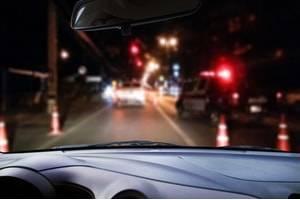Texas Does Not Allow DWI Checkpoints
 Holidays, such as the recent Memorial Day weekend, are a time when law enforcement steps up its efforts to find people who may be driving while intoxicated. As a result, police often report a higher-than-average number of DWI arrests during these periods. The result occurs because of people’s propensity to drink during holidays and an increased police presence on the roads. Does increased law enforcement activity include DWI checkpoints? Not in Texas, where courts have ruled that such checkpoints are unconstitutional.
Holidays, such as the recent Memorial Day weekend, are a time when law enforcement steps up its efforts to find people who may be driving while intoxicated. As a result, police often report a higher-than-average number of DWI arrests during these periods. The result occurs because of people’s propensity to drink during holidays and an increased police presence on the roads. Does increased law enforcement activity include DWI checkpoints? Not in Texas, where courts have ruled that such checkpoints are unconstitutional.
What Are Checkpoints?
Normally, DWI stops occur when police officers pull over drivers that they reasonably suspect may be intoxicated or committing a traffic violation. The principle behind DWI checkpoints is that law enforcement sets up a roadblock where all passing drivers are stopped to check for signs of intoxication. States that allow DWI checkpoints have argued that they are both legal and necessary because:
- They are effective at catching intoxicated drivers;
- They protect public safety from potentially dangerous drivers; and
- They cause minimal intrusion on drivers who are not intoxicated.
Unconstitutional in Texas
The fourth amendment to the U.S. Constitution protects people against unlawful searches and seizures. A police officer is unlawfully seizing you if he or she stops you without reasonable suspicion of DWI or another criminal offense. Prosecutors cannot use any evidence of DWI that was obtained after an unlawful stop, effectively ending the case.
A U.S. Supreme Court ruling in 1990 gave states legal standing to create DWI checkpoints as long as there is a reasonable system in place. A year later, a Texas criminal court of appeals ruled that DWI checkpoints violate the fourth amendment. Police stop all vehicles that pass through a DWI checkpoint, regardless of whether there is any reason to suspect that the driver is intoxicated. These stops are police seizures of drivers, no matter how brief the stop may be. Texas has ruled that the fact that DWI checkpoints catch intoxicated drivers does not justify the unlawful seizure of all drivers at the checkpoint.
Contact a San Antonio DWI Defense Lawyer
The Texas ruling on DWI checkpoints has been in place long enough that law enforcement should be fully aware that they are illegal in this state. If you find yourself at a DWI checkpoint, you should not panic or try to flee. This behavior could give police reasonable suspicion that you are intoxicated. Even if police arrest you at a checkpoint, a San Antonio DWI defense attorney at the Law Offices of Sam H. Lock can contest the charge on the grounds that you were unlawfully seized. Schedule your consultation by calling 210-226-0965.
Source:
https://www.ghsa.org/state-laws/issues/sobriety%20checkpoints





